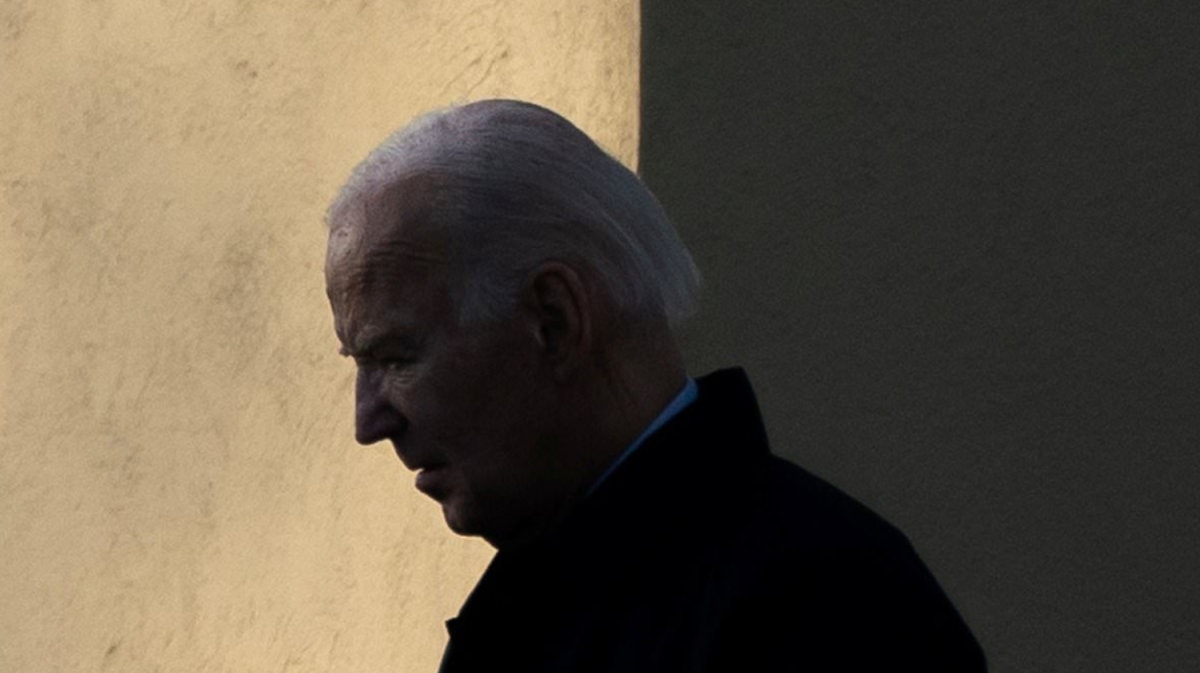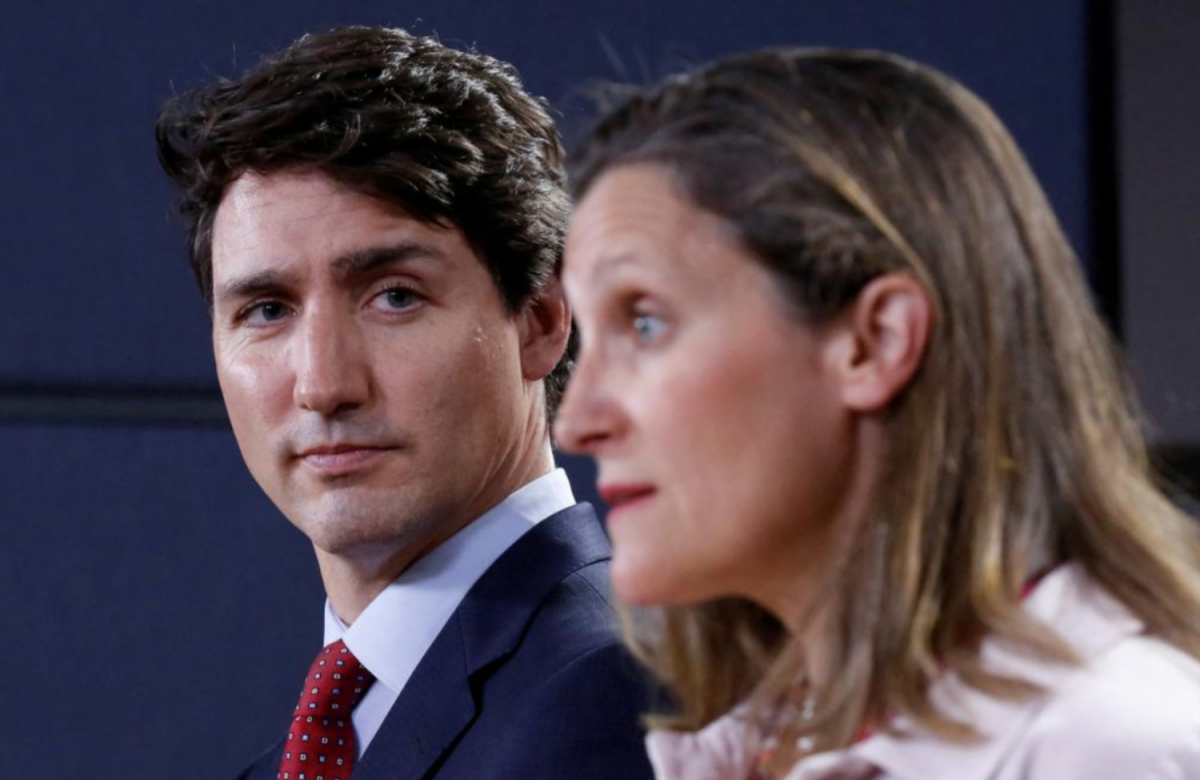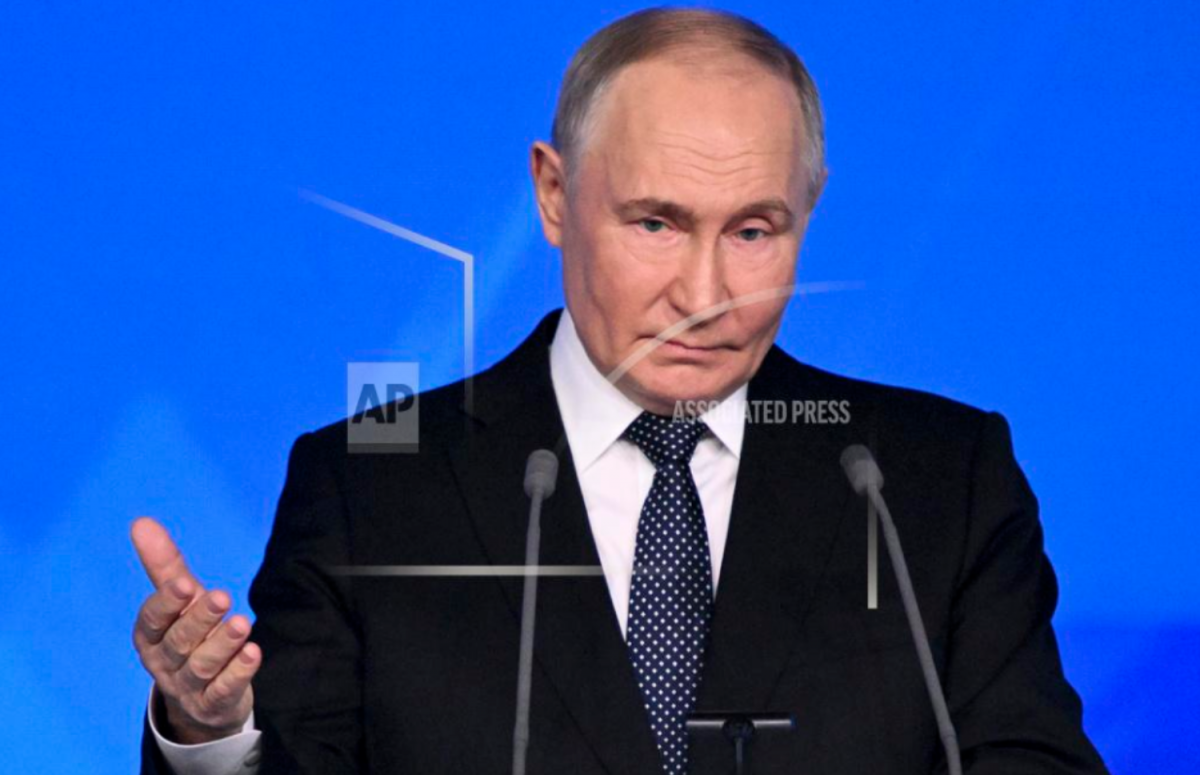-
Posts
10,699 -
Joined
-
Last visited
Content Type
Events
Forums
Downloads
Quizzes
Gallery
Blogs
Everything posted by Social Media
-
Alec Baldwin has pledged to uncover the truth about the tragic incident on the set of *Rust* that claimed the life of cinematographer Halyna Hutchins in October 2021. During a candid conversation with David Duchovny on the December 16 episode of *Fail Better*, the 66-year-old actor declared his determination to share what he believes has not yet come to light. "There's more to come," Baldwin said. "But the more to come is now my effort, and it's going to be undeniably a successful effort, to raise and to expose what really happened." The incident occurred when a prop gun discharged during filming, killing Hutchins, 42, and injuring director Joel Souza. Baldwin has consistently denied pulling the trigger, maintaining that the weapon fired unexpectedly. While he initially faced involuntary manslaughter charges, the case was dismissed in July 2023 after revelations that prosecutors withheld evidence from Baldwin's defense. Baldwin expressed his frustration over how the events were portrayed. "The truth of what happened has never been told," he said, criticizing the media for allegedly misrepresenting him. "The mainstream press and the tabloid press suppressed every story that could benefit me and amplified every story that could hurt me." The *30 Rock* star also reflected on the public backlash following the incident. "When people hate you on that level, they want three things," he told Duchovny. "They want you to die. They want you to go to prison. And the third thing is they want you canceled, which is like being in prison or being dead because you roam the earth and you're invisible." Baldwin credited his wife, Hilaria, for helping him through the darkest moments. "I owe my wife everything," he shared. "She is the most spiritually ascended human being I've ever met, and she was kind to me and supportive of me. She was frustrated. She was in pain. She suffered tremendously." Though the legal case has been dismissed, Baldwin remains resolute in his mission to bring clarity to the tragedy and its aftermath. For him, revealing the full truth is not only about clearing his name but also about ensuring the events leading up to Hutchins' death are fully understood. Based on a report by Newsweek 2024-12-20
-
Counter-terrorism police in the UK are on heightened alert for potential threats posed by British ISIS supporters who may attempt to return home after being released from prisons in Syria. The uncertain future of the war-torn country has raised fears of increased extremism, prompting authorities to bolster their defenses. Vicki Evans, the national counter-terrorism coordinator, highlighted the complexity of the current terror threat, describing it as "smouldering." She noted the dangers posed by Islamic extremists, state-sponsored plots, and attacks by individuals without a clear ideological motive. "Events in Syria are certainly something that are a focus and something that all of us need to think about with our partners," she said. Evans emphasized the enduring risks from both longstanding and emerging enemies of peace. "History tells us that, unfortunately, any instability creates space for extremism, for violence and acts of terror," she explained. The recent ascent of Ahmed al-Sharaa as Syria's de facto leader and the resurgence of the rebel group Hayat Tahrir al Sham (HTS) have added to the concerns. While the UK government has engaged diplomatically with al-Sharaa, HTS remains classified as a banned terrorist organization under British law. Any overt support for the group could result in terror-related charges. Although Evans confirmed no arrests had been made in connection with HTS, she declined to disclose whether any suspects were under investigation. Another troubling trend noted by Evans is the growing presence of violent and harmful content in the online histories of counter-terrorism suspects, including children as young as 10. "It's a pick-and-mix of horror," she said, referencing the increasing prevalence of extreme violence, pornography, misogyny, and gore among those under investigation. "We most definitely need to think differently about how we stop that conveyor belt of young people who are seeing and being exposed to this type of material and, unfortunately, sometimes then going on to commit horrific acts," she added. As authorities brace for potential threats stemming from Syria's instability, the focus remains on preventing acts of terror and addressing the evolving challenges posed by extremist ideologies and harmful online influences. Based on a report by Sky News 2024-12-20
-
The UK’s elections watchdog is advocating for changes in electoral law that could prevent Elon Musk from making a substantial £80 million donation to Nigel Farage's Reform Party. This call for reform arises amid speculation that the billionaire entrepreneur is considering a significant financial contribution to transform Reform into a formidable political force. Talks between Musk and Farage reportedly took place earlier this week at Donald Trump’s Mar-a-Lago estate in Florida. Farage confirmed that “the issue of money was discussed” and indicated there would be “ongoing negotiations on that score.” Reports suggest Musk, one of the wealthiest individuals in the world, is mulling over a donation of up to $100 million (£80 million) to strengthen Reform's campaign to challenge Labour in the next general election. Musk has been an outspoken critic of Labour leader Sir Keir Starmer, particularly over his response to recent riots. According to Farage, Musk views both Labour and the Conservatives as part of a political “uniparty” and has expressed strong support for the Reform Party. Farage remarked that Musk “left us in no doubt that he is right behind us.” As a foreign citizen, Musk is barred from directly donating to political parties in the UK. However, under existing rules, he could channel funds through one of his UK-based companies. This loophole has prompted the Electoral Commission to call for tighter regulations to ensure donations from foreign individuals or entities are restricted to money generated within the UK. Electoral Commission Chief Executive Vijay Rangarajan stressed the importance of public confidence in the political funding process, stating, “It’s crucial that UK voters have trust in the financing of our political system, so they need to see how parties and campaigners are financed and how they spend that money at elections.” Rangarajan confirmed that the Commission is discussing these proposals with the government. Downing Street acknowledged that electoral law reform is under consideration, though it is not a legislative priority in the current parliamentary session. The Prime Minister’s official spokesman also emphasized Labour leader Sir Keir Starmer’s commitment to safeguarding democracy, stating that he is “committed to protecting democracy from the threat of foreign interference by strengthening the rules around donations.” With discussions ongoing, the proposed reforms could have significant implications for the future of political funding in the UK, potentially limiting the influence of wealthy foreign donors like Musk. The debate underscores growing concerns over transparency and fairness in electoral financing, as the UK seeks to protect its democratic processes from external interference. Based on a report by Daily Mail 2024-12-20
-
A seemingly ordinary Google Street View image has played a crucial role in solving a murder case in the quiet hamlet of Tajueco, located in Spain’s northern province of Soria. The image captured a man leaning over the open boot of a car, appearing to load a bulky white sack. Police later confirmed that the photo provided a vital clue in their investigation into the disappearance of a man last seen in November of the previous year. An earlier Google image also showed a person pushing a white object in a wheelbarrow, adding to the series of events pieced together by investigators. These visuals, combined with text messages and additional evidence, ultimately led to the arrest of two suspects. According to Spanish newspaper *El País*, the victim, identified as a Cuban citizen, was reportedly killed and dismembered. Police launched their investigation after a relative of the victim grew suspicious upon receiving text messages from his phone. The messages claimed that the missing man had found a new partner, planned to leave the area, and intended to dispose of his phone. However, the relative doubted the authenticity of these messages and reported his concerns to authorities. The investigation culminated in the arrest of two individuals last November: a woman said to be the victim’s partner and a man who was previously in a relationship with her. While details of the crime remain under investigation, the case is being treated as murder. The role of Google Street View in uncovering this chilling crime highlights how digital tools and technology can inadvertently assist law enforcement in solving complex cases. What initially seemed like an unremarkable snapshot of rural life ultimately exposed a harrowing truth, helping to bring those allegedly responsible to justice. Based on a report by Sky News 2024-12-20
- 1 reply
-
- 3
-

-

-
President Joe Biden is facing accusations from members of his own party of "quiet quitting," a term popularized by Gen-Z to describe the gradual disengagement from a job without formally resigning. At 82 years old, and with only a month remaining in his term, Biden has noticeably reduced his public appearances, press interactions, and overall visibility, drawing sharp criticism from Democrats and political commentators alike. During his campaign, Biden repeatedly warned that President-elect Donald Trump posed a "threat to democracy," but his rhetoric has significantly softened since the election. "It's just odd that, you know, he talked about Donald Trump being an existential threat to democracy for so long," observed Tommy Vietor, a former Obama aide and co-host of the "Pod Save America" podcast. On a recent episode, Vietor described Biden's approach as akin to "quiet quitting," a notion his fellow hosts echoed. A Politico article exploring Biden's apparent withdrawal sparked further discussion. A Democrat close to senior lawmakers voiced frustration, stating, "There is no leadership coming from the White House. There is a total vacuum." Another source noted, "In conversations that I'm having, they don't even mention the president. It feels like Trump is president already." While Trump has remained active during the transition period—holding press conferences, attending high-profile events like the Army-Navy game, and meeting with world leaders in Paris—Biden's schedule has been strikingly subdued. He has yet to hold a post-election press conference, and his interactions with the press have been sparse. On recent trips to Peru for the APEC summit and Brazil for the G20, Biden reportedly uttered only seven words to reporters, as counted by Politico. The president’s silence during these critical moments has allowed other narratives to dominate. For instance, a misleading viral video suggested he got lost in the Amazon rainforest, and reports emerged that he missed a key G20 group photo while chatting with Canadian Prime Minister Justin Trudeau and Italian Prime Minister Giorgia Meloni. Biden’s mid-week trip to Delaware further underscored his low-profile approach. On Wednesday, he marked the solemn anniversary of the 1972 car accident that claimed the lives of his first wife, Neilia, and their daughter, Naomi, by attending church services in Wilmington. According to sources, Biden's apparent withdrawal stems from two factors: his acknowledgment that public interest in hearing from him is waning and a lingering sentiment that he owes little to a party that, at times, distanced itself from him. As the end of Biden's presidency draws near, questions about his leadership and engagement have left many Democrats uneasy. Meanwhile, Trump’s increased visibility during the transition has shifted the political spotlight, leaving Biden’s critics to wonder whether he will make a more substantial public reappearance in his remaining days in office. Based on a report by Daily Mail 2024-12-20
-

Winning The Trans Debate: Balancing Victory with Integrity
Social Media posted a topic in World News
The so-called “trans wars” seem to be reaching a pivotal conclusion. In 2024, significant developments, including the Cass Review, Wes Streeting’s decision to ban prescribing puberty blockers to children, and a series of legal rulings affirming the right to uphold belief in biological sex, signaled a return to what many describe as common sense. These outcomes suggest a turning tide, one that gender-critical feminists view as vindication of their long-held positions. Public opinion has shifted dramatically. Only 30 percent of British adults now support the ability to change the sex registered on one’s birth certificate, down from 53 percent in 2019. This reversal underscores the growing skepticism surrounding trans-rights activism, which, for all its noise, has struggled to gain traction. As Right-wing populism rises in opposition to progressive pieties, people increasingly resist what they perceive as moral impositions—especially on fundamental matters like biology. For gender-critical feminists, who have faced significant opposition and personal consequences, the challenge now is to avoid the pitfalls of triumphalism or adopting the rhetoric of victimhood. Natalie Bird’s legal battle with the Liberal Democrats is a case in point. Barred from standing as an MP after wearing a T-shirt emblazoned with “Woman: Adult Human Female,” Bird sued her party for discrimination. Though the Lib Dems admitted fault, she pursued further compensation for “injured feelings,” a move that mirrors the tactics often criticized in her ideological opponents. While Bird’s actions are understandable, they risk blurring the distinctions that have set gender-critical feminists apart from their adversaries. The rhetoric of victimhood has been a hallmark of trans-rights campaigns, which have often relied on emotional appeals to counter opposition. To the victors, however, comes a different reward: the clarity and dignity of being right. Feminists have long maintained their composure under fire, and preserving this integrity is crucial even as they navigate the complexities of success. In a seemingly unrelated but equally fascinating arena, portraiture provides a glimpse into the timeless allure of vanity. Consider “The Visionary,” a 1989 painting commissioned by Donald Trump for Mar-a-Lago. Created by Ralph Wolfe Cowan, the portrait bathes its subject in celestial light, presenting an idealized version of reality. Cowan’s boast—“Nobody ever dislikes my portraits”—captures an enduring human desire for flattery. Historically, British portraiture thrived on this very principle. With the collapse of religious art markets post-Reformation, artists turned to wealthy patrons, crafting flattering depictions that emphasized grandeur over reality. Yet today, this tradition has fallen out of favor in high art, where raw, unvarnished depictions dominate. The modern disdain for self-flattering art is perhaps best exemplified by personal anecdotes. One recalls a brief romance with a man who had commissioned a Trump-like portrait of himself. Displayed prominently at the foot of his bed, the image served as a daily reminder of his aspirational self-image, ultimately dooming the relationship. Such stories illustrate how excessive self-regard, whether in activism or art, often leads to unintended consequences. Both the trans debate and the art of portraiture underscore timeless human tensions—between identity and reality, conviction and vanity. In victory or self-expression, the balance between authenticity and excess remains as vital as ever. Based on a report by Daily Telegraph 2024-12-20 -
Facebook has faced significant criticism for limiting the reach of Palestinian news outlets during the Israel-Gaza conflict, as revealed by BBC research. Analyzing Facebook data, the BBC found that audience engagement for newsrooms in Gaza and the West Bank experienced a dramatic decline, starting in October 2023. A BBC Arabic investigation highlights that prominent Palestinian-based news organizations suffered a 77% drop in engagement following the Hamas attacks on Israel on 7 October 2023. Engagement, which includes metrics such as comments, reactions, and shares, is a key indicator of the visibility and impact of social media content. During wartime, engagement is generally expected to rise as audiences seek updates. However, the opposite occurred for these newsrooms. Palestine TV, one of the affected outlets, reported a 60% drop in the visibility of its posts, despite having a substantial following of 5.8 million people. “Interaction was completely restricted, and our posts stopped reaching people,” said journalist Tariq Ziad, reflecting broader frustrations among Palestinian journalists. Many have accused Meta, Facebook’s parent company, of “shadow-banning” their content, restricting how many users can see it. Meta has denied allegations of deliberate suppression. The company acknowledged implementing "temporary product and policy measures" in October 2023, citing challenges in balancing freedom of speech while addressing the designation of Hamas as a US-sanctioned and dangerous organization under Meta’s policies. “We acknowledge we make mistakes, but any implication that we deliberately suppress a particular voice is unequivocally false,” a Meta spokesperson stated. Leaked documents suggest that Instagram, another Meta-owned platform, modified its algorithm shortly after the October 2023 attacks, intensifying moderation of comments from Palestinian users. According to an anonymous source, this algorithmic adjustment made moderation “more aggressive towards Palestinian people.” Internal communications reveal that an engineer within the company raised concerns about the change, warning it could introduce bias against Palestinian users. Meta confirmed the change but argued it was a necessary response to a surge in “hateful content” emerging from the Palestinian territories. This acknowledgment adds to the broader debate over the role of social media companies in moderating content during sensitive geopolitical events. While Meta maintains that it has not intentionally suppressed any voices, the sharp decline in engagement for Palestinian news organizations raises questions about the unintended consequences of its content moderation policies. These developments have intensified concerns among journalists and activists about the fairness and transparency of Meta’s actions in conflict zones. Based on a report by BBC 2024-12-19
-
Teenagers suspected of involvement in terrorism could face bans from online messaging platforms such as WhatsApp and Telegram as part of a new government effort to tackle the rising threat of youth radicalisation. The proposed measures, under the framework of Youth Diversion Orders, aim to prevent vulnerable young people from being drawn into extremist ideologies. Counter-terrorism police would be granted the authority to impose restrictions on the digital activities of minors deemed at risk. These restrictions would not involve a blanket ban on internet access but could prohibit visits to specific websites, online forums, or the use of messaging applications linked to radicalisation. The final decision on such restrictions would rest with the judiciary, which must determine their necessity and proportionality in managing risks. The Home Office has also confirmed that under the new scheme, officers could mandate participation in the Prevent counter-extremism programme. This initiative is designed to educate and rehabilitate individuals at risk of being influenced by extremist views. The announcement follows alarming revelations from MI5 Director General Ken McCallum about the growing number of minors engaging with "poisonous online extremism." He described the trend as "staggering," highlighting that under-18s now account for 13 percent of all individuals under investigation by security services. This issue has also drawn concern from the international intelligence community. The Five Eyes security alliance, comprising the UK, the US, Canada, Australia, and New Zealand, recently expressed alarm over the increasing radicalisation of minors, including cases where young people have supported, planned, or attempted terrorist activities. A Home Office spokesperson explained, “Police will be able to apply to the Courts for a Youth Diversion Order, permitting them—in partnership with other agencies—to intervene earlier and to impose conditions such as engagement with Prevent interventions or restrictions on online activity. The Courts must deem these conditions to be necessary and proportionate to mitigate terrorist risk.” These measures build on recommendations by Jonathan Hall KC, the Independent Reviewer of Terrorism Legislation, who has raised concerns about the decreasing age of alleged terrorist offenders. He has emphasized that many of these young individuals could be classified as vulnerable. Welcoming the initiative, Hall stated, “Good to see government statement on designing new measures to divert young people involved in terrorism away from arrest and prosecution.” His observations underline the urgent need for strategies to address this growing issue in a way that prioritizes rehabilitation over punitive action. As the government and security agencies grapple with the complexities of tackling extremism among minors, these proposed measures mark a significant step toward addressing the digital pathways that lead to radicalisation. The hope is that by intervening early and focusing on education and support, these efforts can help steer vulnerable young people away from the dangerous grip of extremist ideologies. Based on a report by Daily Mail 2024-12-19
-
At just 17 years old, Payton McNabb’s dreams of becoming a college athlete were shattered during a volleyball game that would forever alter her life. A ball spiked by a transgender opponent struck her in the head, resulting in severe injuries that derailed her athletic future. Now 19, McNabb is using her story to champion the rights of female athletes in a documentary titled *"Kill Shot: How Payton McNabb Turned Tragedy Into Triumph,"* created by the Independent Women’s Forum. “If my story can in any way help prevent this from happening to at least just one woman or girl, then it was all worth it,” McNabb told *The Post.* The incident took place in 2022 during a high school volleyball game at Hiwassee Dam High School in Murphy, North Carolina. McNabb and her teammates were aware of the transgender athlete on the opposing team but felt powerless to express their concerns. “We never thought we would ever be put in this position to begin with,” she said. “I didn’t know one person who agreed with [a transgender athlete competing against us] on my team, but we didn’t know what to do.” What began as a routine match turned devastating when the opposing player delivered a spike that hit McNabb’s head, knocking her unconscious for 30 seconds. As the gym fell silent, McNabb was rushed off the court with what initially appeared to be a concussion, neck injury, and two black eyes. “It was 100% avoidable, if only my rights as a female athlete had been more important than a man’s feelings,” McNabb reflected. The full extent of her injuries unfolded over the following weeks. Diagnosed with a traumatic brain injury, a brain bleed, partial paralysis, and permanent vision loss on her right side, McNabb also faced memory loss, confusion, and debilitating headaches. Her mother, Pamela McNabb, expressed deep regret, saying, “The guilt Payton’s father and I carry is heavy. At the time, we weren’t allowed to speak up. We couldn’t say, ‘No, she’s not playing against a boy, it’s dangerous.’” A lifelong athlete, McNabb was devastated to miss her senior volleyball season. “I had the hopes and dreams of playing college softball and I had the opportunities too, but my injury set me back, and it didn’t end up working out,” she said. “I was really depressed.” The new documentary offers a raw and emotional account of McNabb’s journey, featuring footage of the incident and interviews with her family, who speak publicly for the first time. Her mother’s message in the film is clear: “I would never, ever let her play today if I knew what I know now. Pull your kid. Don’t play. It is not worth what has happened to her to happen to anybody else’s child.” Despite her ordeal, McNabb chose to channel her experience into advocacy. In April 2023, at age 17, she testified before the North Carolina General Assembly in support of the Fairness in Women’s Sports Bill. Though stepping into the spotlight was outside her comfort zone, McNabb felt compelled to speak out for future generations. “I thought about this happening to my younger sister or, if I have kids one day, my daughter, and I seriously just cannot accept that at all,” she said. Shortly after her testimony, North Carolina enacted legislation banning transgender athletes from competing in female sports at the middle school, high school, and college levels. McNabb’s story has become a rallying cry for many, serving as a stark reminder of the importance of preserving fairness and safety in women’s sports. Her courage in turning personal tragedy into a movement for change ensures her voice will resonate far beyond the volleyball court. Based on a report by NYP 2024-12-19
-
Trey Yingst: A Reporter in the Heart of Conflict Trey Yingst, Fox News’s leading foreign correspondent, has spent the past year covering some of the world’s most brutal conflicts. His work has taken him to Ukraine, documenting the ongoing devastation from Russia’s war on the country, and to Israel, where he has reported on the aftermath of the Hamas attack in 2023. “Very quickly an audience can be overwhelmed just by the graphic nature of war,” Yingst reflected. “I’m constantly thinking to myself how can I humanize the people involved here.” His approach emphasizes not just the statistics and strategy of war but the human lives at its center, ensuring that viewers see more than just destruction. As someone who has reported from some of the most dangerous locations in the world, Yingst is no stranger to the unpredictable nature of war. “For us, safety is the number one priority,” he explained. “The bottom line is war is unpredictable.” Through his work, Yingst continues to bring clarity and compassion to the chaos of global conflict, ensuring that the stories of those impacted are told with the care and objectivity they deserve. Based on a report by The Hill 2024-12-19
-
CNN has reached a troubling milestone, hitting its lowest total day demo rating in the network’s history. Among the key 24-to-54-year-old demographic, known as “demo viewers,” CNN's audience has dropped by one percent from last year, according to data from Nielsen Media Research reported by Mediaite. Last year, the network recorded a daily demo audience of 94,000, but that number has now declined to 92,000. The network’s struggles are evident in its shrinking prime-time audience, particularly after the 2024 election. CNN accounted for just 11 percent of cable news viewers during prime time last month. Since Donald Trump’s 2016 presidential victory, the network’s prime-time viewership has plummeted by 52 percent. Currently, its prime-time demo audience averages 77,000 viewers, highlighting the steep decline. Despite the grim numbers, CNN's average total day viewership showed a slight three percent increase from last year, reaching 488,000 viewers. However, among demo viewers, CNN fared better than MSNBC but continued to trail behind Fox News. The network’s top programs, including *Anderson Cooper 360*, *The Source with Kaitlan Collins*, and *CNN News Night with Abby Phillip*, averaged just 367,000 viewers last week, as reported by Fox News. In response to these challenges, CNN’s parent company, Warner Bros. Discovery, has unveiled a significant restructuring plan aimed at addressing the network’s ratings slump and setting a course for future growth. The company announced its new operating model, which will divide its operations into two distinct divisions: Global Linear Networks and Streaming & Studios. The Global Linear Networks division will focus on television programming, including news, sports, and both scripted and unscripted content. Meanwhile, the Streaming & Studios division will center on digital platforms and fostering strategic opportunities, particularly in the entertainment sector. David Zaslav, President and CEO of Warner Bros. Discovery, expressed optimism about the changes, stating, “Since the combination that created Warner Bros. Discovery, we have transformed our business and improved our financial position while providing world-class entertainment to global audiences.” With these shifts in strategy, CNN and its parent company hope to reverse the downward trend and reestablish their position in an increasingly competitive media landscape. Based on a report by Daily Mail 2024-12-19
-
Canadian Prime Minister Justin Trudeau is under growing scrutiny and increasing calls to step down following the sudden resignation of Finance Minister Chrystia Freeland. The departure of a key ally has intensified criticism of Trudeau's leadership, with opponents claiming he has "lost control of everything." Freeland, once regarded as Trudeau’s most influential minister and nicknamed the “minister of everything,” resigned Monday, expressing deep disagreement with Trudeau’s handling of Canada’s response to potential U.S. trade tariffs under President-elect Donald Trump. In a strongly worded resignation letter shared on X (formerly Twitter), Freeland highlighted the challenges facing Canada and took aim at what she described as costly political decisions. “For the last number of weeks, you and I have found ourselves at odds over the best path forward for Canada,” Freeland wrote. She emphasized the importance of preparing for Trump’s looming 25% tariffs by maintaining fiscal discipline and avoiding unnecessary spending. “That means keeping our fiscal powder dry today, so we have the reserves we may need for a tariff war. That means eschewing costly political gimmicks, which we can ill afford,” she added. Freeland’s departure resonated deeply in the political sphere, with sources reporting that she received a standing ovation upon entering a parliamentary session following her announcement. However, her resignation has emboldened critics, particularly within the opposition. The number of Members of Parliament (MPs) calling for Trudeau’s resignation has grown significantly. According to the *Toronto Star*, at least 45 MPs have now signed a letter urging him to step aside, up from 24 in previous weeks. Conservative Leader Pierre Poilievre, a vocal critic of Trudeau, seized the moment to denounce the prime minister’s administration. “The real consequences of yesterday’s clown show are playing out in tragedies right across this country,” Poilievre remarked, as reported by the *National Post*. “Justin Trudeau has lost control of everything.” Similarly, Bloc Québécois Leader Yves-François Blanchet urged Trudeau to prioritize the nation’s stability over personal ambition. “We must put an end as quickly as possible to the very bad spectacle that we are giving internationally about the way Canada is preparing to face discussions with the Americans,” Blanchet said, emphasizing the need for decisive leadership. Both Poilievre and Blanchet are advocating for a federal election in early 2025, signaling their readiness to challenge Trudeau’s leadership head-on. The fallout from Freeland’s resignation has deepened the political crisis surrounding Trudeau, with critics citing it as evidence of an unraveling administration. Whether Trudeau can weather this storm remains to be seen, but the growing discontent within and outside his party suggests the road ahead will be anything but smooth. Based on a report by NYP 2024-12-19
-
Labour leader Sir Keir Starmer has defended his government’s controversial decision not to compensate the Women Against State Pension Inequality (Waspi), stating that such payments would "burden" the taxpayer. The announcement has ignited widespread criticism, with some branding it a "day of shame" for the Labour government. Others have condemed Starmer by claiming its betrayal that proves Labour cynically said ANYTHING to get elected. Just a reminder, @leicesterliz of what you promised. Hard to see how your statement refusing #WASPI women justice today is a "fair solution". The decision has provoked outrage from opposition parties and advocacy groups. The Liberal Democrats denounced the announcement, accusing Labour of abandoning pension-aged women who were unfairly affected. "This is a day of shame. Millions of women who were wronged are being let down again," a party spokesperson said. The Waspi group has long argued that women born in the 1950s suffered financially because they were not given adequate warning to prepare for changes to their retirement age. Initially, legislation in the mid-1990s aimed to gradually equalize the retirement age for men and women over a decade. However, the timetable was accelerated under the coalition government as part of austerity measures, leaving many women unable to adjust their plans in time. Earlier this year, the Parliamentary and Health Service Ombudsman (PHSO) found that thousands of women had been adversely affected by failures to communicate the changes effectively. The PHSO recommended compensation ranging from £1,000 to £2,950 for those impacted. However, these recommendations were not legally binding, leaving the government with no obligation to act. Critics argue that the lack of compensation amounts to a dismissal of the hardship endured by millions of women. Advocates point to the financial instability and stress many have faced due to the unexpected delay in accessing their pensions. Despite the backlash, Starmer and Kendall remain firm in their stance, citing fiscal responsibility and fairness to taxpayers as primary concerns. For the Waspi women, however, the decision represents yet another setback in their ongoing fight for justice. Based on a report by Sky News 2024-12-19
-
Sir Keir Starmer is set to champion carbon capture technology in a groundbreaking "green industrial partnership" with Norway, despite concerns from critics over its effectiveness on a large scale. The deal, to be signed alongside Norway’s Prime Minister Jonas Gahr Støre, aims to bolster efforts to capture industrial carbon dioxide emissions and store them securely in geological formations beneath the North Sea. Carbon capture usage and storage (CCUS) is designed to intercept CO2 emissions before they reach the atmosphere, preventing their contribution to climate change. However, opponents of the technology argue that it remains unproven at a large scale, is costly, and could potentially extend reliance on fossil fuels instead of fostering a full transition to renewable energy sources. Nonetheless, Sir Keir is optimistic about the potential benefits, particularly for the UK economy. “This Green Industrial Partnership will allow us to seize the opportunities from a new era of clean energy, driving investment into the UK and boosting jobs both now and in the future,” he said. Highlighting the country’s strategic position, he added, “It will harness the UK’s unique potential to become a world leader in carbon capture – from the North Sea to the coastal south – reigniting industrial heartlands and delivering on our Plan for Change.” He also emphasized the broader geopolitical and economic advantages, noting that the collaboration with Norway could enhance the UK’s energy security. “Our partnership with Norway will make the UK more energy secure, ensuring we are never again exposed to international energy price spikes and the whims of dictators like Putin,” he stated. During the visit, Sir Keir will tour a cross-border carbon transport and storage facility in Norway to witness firsthand how such projects could benefit the UK. The government recently signed the first CCUS contracts in the UK, with major players such as BP and Norwegian company Equinor leading initial initiatives like the Northern Endurance Partnership and Net Zero Teesside. These projects are projected to generate thousands of skilled jobs and provide clean energy to up to one million homes by 2028. Norwegian Prime Minister Jonas Gahr Støre echoed the importance of the partnership, emphasizing the shared vision of a greener future. “We need co-operation, knowledge, and innovation to better equip us to face the future. The partnership with the UK will be important to facilitate more green jobs both in Norway and the UK, and for advancing the green transition,” he said. While the partnership offers the promise of revitalized industrial regions and economic growth, questions remain about the environmental impact and long-term feasibility of relying on carbon capture technology. Even as governments and corporations push forward with these initiatives, the debate over their role in a sustainable future persists. Based on a report by Daily Telegraph 2024-12-19
-
Columbia University has come under scrutiny after Joseph Massad, a professor who described Hamas’ October 7 attacks on Israel as "awesome," is slated to teach a course on Zionism. The course, according to the university's description, will examine the "History of the Jewish Enlightenment (Haskala) in 19th century Europe" and trace the development of Zionism up to the present peace process involving Israel, Arab states, and the Palestinian national movement. Massad’s controversial remarks appeared in a column for The Electronic Intifada, posted the day after Hamas’ attack, which resulted in widespread casualties and international condemnation. In the article, Massad described the actions of Palestinian fighters as “astounding,” stating, “The sight of the Palestinian resistance fighters storming Israeli checkpoints separating Gaza from Israel was astounding, not only to the Israelis but especially to the Palestinian and Arab peoples who came out across the region to march in support of the Palestinians in their battle against their cruel colonizers.” He further elaborated, saying, “No less awesome were the scenes witnessed by millions of jubilant Arabs who spent the day watching the news, of Palestinian fighters from Gaza breaking through Israel’s prison fence or gliding over it by air.” These comments, which appeared to praise the events, have sparked backlash from critics who accuse Massad of glorifying violence. Representative Ritchie Torres, a Democrat from New York and a vocal supporter of Israel in Congress, condemned Columbia University for allowing Massad to continue teaching. Taking to X, formerly known as Twitter, Torres stated, “Why should U.S. taxpayers subsidize ideological indoctrination that glorifies the mass murder, maiming, mutilation, rape, and abduction of Jews and Israelis?” Massad’s column and his upcoming course on Zionism have reignited debates surrounding academic freedom, the boundaries of political discourse, and the role of universities in addressing controversial viewpoints. Critics argue that Massad’s statements are inflammatory and inappropriate for someone teaching a subject as sensitive and contentious as Zionism, while defenders may view his writings as an expression of academic freedom and a critical perspective on ongoing conflicts in the Middle East. Columbia University has not issued a public statement on the controversy, leaving questions about how the institution will navigate the backlash and whether it will address concerns raised by critics, including lawmakers and members of the public. Columbia international and public affairs adjunct professor Lawrence Rosenblatt reportedly has resigned because of the class. Based on a report by Yahoo 2024-12-19 Related Topics: Hamas Cheering Protestors at Columbia University Columbia University Deans Resign Following Scandal Over Antisemitic Texts Outrage as Manhattan DA Drops Charges Against Columbia University Anti-Israel Protesters King’s College London Faces Backlash Over Handling of Hamas Propaganda Complaint
-
A UK court has ruled that more than £2 million can be seized from Andrew Tate and his brother Tristan after they failed to pay taxes on £21 million in revenue generated by their online businesses. The decision follows a case brought by Devon and Cornwall Police, which targeted funds held in seven frozen bank accounts associated with the brothers and a third individual, referred to as "J." At Westminster Magistrates' Court, Chief Magistrate Paul Goldspring rejected the brothers' arguments, describing their financial dealings as a "straightforward cheat of the revenue" despite the apparent complexity of their transactions. Andrew Tate responded to the ruling by calling it a "coordinated attack" and declared, "This is not justice." The court heard that the brothers had funneled just under $12 million into an account under J's name. A second account was also created in her name, even though she had no involvement in their online ventures, which include ventures like War Room, Hustlers' University, Cobra Tate, and OnlyFans. A portion of the funds in J's accounts was held as cryptocurrency. Lawyers for Devon and Cornwall Police argued that Andrew Tate had openly admitted to avoiding taxes in the UK, citing his publicly stated strategy to "ignore, ignore, ignore because in the end they go away." Judge Goldspring ruled in favor of the police, noting that the brothers failed to provide any evidence of legitimate tax payments. Instead, they had relied on their legal team’s claims that the movement of funds constituted lawful business activities. "I am satisfied that the brothers engaged in long-standing, deliberate conduct in order to evade their tax obligations," the judge wrote in his decision. As a result, the court approved the seizure of £2,683,345, including assets held in cryptocurrency. This ruling marks another significant legal setback for the Tate brothers. Romanian prosecutors charged Andrew Tate in June last year with rape, human trafficking, and forming a criminal organization. His brother Tristan faces separate allegations of human trafficking, with Romanian authorities claiming the case involves seven victims allegedly lured under false promises of love and marriage. Adding to their legal woes, Bedfordshire Police are seeking to extradite the brothers to the UK to face allegations of rape and human trafficking. A judge in Bucharest has confirmed that the extradition request will only proceed after the Romanian case reaches its conclusion. Based on a report by BBC 2024-12-19
-
The shocking murder of UnitedHealthcare CEO Brian Thompson by Luigi Mangione has ignited a firestorm of debate about left-wing violence and its growing presence in political discourse. Even before it was confirmed that the killing was politically motivated, some left-leaning voices were quick to justify, rationalize, or even celebrate the act. This reaction underscores a deeper, troubling cultural shift. In certain progressive circles, a disturbing debate has emerged over whether targeting figures of corporate power is ever justifiable. The unrestrained demonization of industries like health insurance, pharmaceuticals, and Big Oil has become commonplace, with narratives framing profit motives as the root of societal suffering. This mindset, prevalent among some college-educated activists, portrays the business world as inherently harmful—a belief that appears to have radicalized individuals like Mangione. “If any MAGA professors or journalists were online publicly defending the killing of perceived political enemies, thousands of wringing hands would be lamenting the menacing rhetoric of conservatism,” critics rightly observe. Yet, when progressive voices echo similar justifications for violence, the outrage is noticeably muted. The ideological double standard is glaring, and it demands examination. This isn’t the first time leftist rhetoric has veered dangerously toward extremism. From rationalizing the destruction caused by the Black Lives Matter riots to defending violent acts by Palestinian terrorists, certain factions of the progressive movement have normalized a continuum of ideological aggression. The result is a troubling desensitization to violence as a means of achieving political ends. When riots engulfed American cities in recent years, causing billions in damages and destroying countless lives, media coverage was often dismissive or downplayed the chaos as “mostly peaceful protests.” Contrast this with the widespread alarm over perceived threats from right-wing extremists, which led to the Justice Department creating a new category of extremists to counter “anti-government or anti-authority violent extremism.” The disparity in response reveals a selective focus on one form of extremism while turning a blind eye to another. Historically, the left has had a fraught relationship with political violence. Groups like the Weather Underground carried out bombings in the 1970s, targeting institutions like the Capitol, the Pentagon, and law enforcement. During a particularly tumultuous 18-month period from 1971 to 1972, there were over 2,500 bombings attributed to leftist groups in the United States. Alarmingly, much of this violence was either ignored or glorified by certain intellectual elites. The case of Luigi Mangione reflects a continuation of this pattern. How does an Ivy League-educated engineer, seemingly rational and accomplished, turn to such a dark path? The answer lies in a culture where incendiary rhetoric against perceived oppressors—corporate leaders, political opponents, and authority figures—is normalized, even celebrated. As the nation grapples with this tragedy, it’s clear that a broader conversation is necessary. Left-wing extremism, like its right-wing counterpart, poses a significant threat to civil discourse and societal stability. Ignoring this reality only perpetuates the cycle of violence and division. Based on a report by NYP 2024-12-18
-
Former FBI informant Alexander Smirnov admitted in court on Monday to fabricating claims about a bribery scheme involving President Joe Biden and his son Hunter Biden. His false allegations, which gained traction among certain political factions, played a significant role in fueling the GOP-led impeachment inquiry into the president. Smirnov also pleaded guilty to a separate charge of tax evasion, stemming from an indictment accusing him of concealing millions of dollars in income. According to reports, his sentence, expected to range from four to six years, will be determined in January. Additionally, Smirnov has been ordered to pay $675,502 in restitution and has agreed to settle $2.1 million in taxes and penalties for income earned between 2020 and 2022. The case sheds light on Smirnov’s role as a confidential source for the FBI before his criminal behavior came to light. He was charged in February with felony false statement and obstruction crimes. Among his most explosive claims was an accusation that Ukrainian energy company Burisma had paid $5 million each to Joe Biden and Hunter Biden during 2015 or 2016. These allegations, prosecutors revealed, were completely fabricated and began circulating in June 2020. Before his indictment, Smirnov’s identity remained unknown to the public. His statements were later revealed to be baseless, undermining their use as evidence in the impeachment inquiry. In February, Hunter Biden categorically denied involving his father in his business activities, including his position on the board of Burisma. Responding to the impeachment inquiry, he criticized the process, while Republicans failed to uncover evidence suggesting that President Biden had benefitted from his son’s international business dealings. Smirnov’s guilty plea highlights the dangers of politically charged misinformation and its potential impact on public trust. As the legal proceedings continue, the case underscores the importance of verifying claims before using them as the basis for political or legal action. Based on a report by AXIOS 2024-12-18
-
A self-checkout glitch at Waitrose in Scotland has left shoppers frustrated after being prevented from purchasing Christmas treats containing alcohol before 10am. Due to the country’s strict alcohol laws, which dictate when alcoholic beverages can be sold, products like Christmas puddings and cakes laced with spirits have been mistakenly flagged as restricted items. Scottish regulations prevent the sale of alcohol in shops between 10pm and 10am. While such laws are designed to curb alcohol misuse, they’ve inadvertently extended to festive delicacies, leaving shoppers baffled and irritated. One shopper, Stewart Meldrum from Renfrewshire, shared how his wife Carol was prevented from buying a tiramisu at a self-service checkout. “At the self-service checkout, she was notified ‘assistance required,’” he explained to the *Scottish Daily Mail*. “Baffled as to why, the assistant told her that the product she was trying to scan through contained alcohol and as it was before 10am, the purchase was unlawful.” The problem didn’t stop there. Meldrum said he witnessed another shopper experiencing the same issue while trying to buy a Christmas cake. Frustrated, Carol ultimately left without her dessert. “What next? Will they cordon off the tiramisu at night?” Meldrum, 75, asked. “Why do we in Scotland tolerate such ludicrous micro-governance? I’m seething.” Waitrose, whose festive range includes products such as a £15 Cointreau and Cranberry Christmas pudding and a £19 fruit cake infused with brandy, apologized to affected customers. A spokesperson for the retailer assured shoppers that the issue was a “temporary error” and would be fixed shortly. “We’re very sorry for the inconvenience Mr and Mrs Meldrum experienced – this was a temporary error with our system and will be resolved very soon,” they said. The controversy highlights growing frustrations around Scotland’s unique alcohol laws, which not only restrict sales during specific hours but also ban multibuy offers and enforce a minimum pricing policy. Recently, the minimum price per unit increased to 65p, meaning a bottle of wine now costs at least £6.34, while a bottle of whisky cannot be sold for less than £18.20. Critics argue that such policies disproportionately impact Scottish retailers. Annie Wells, the Scottish Conservatives’ alcohol spokesperson, accused Waitrose of overcomplicating the rules. “Common sense should prevail to ensure that these restrictions are kept within the spirit of the law instead of depriving grown adults from purchasing quintessential Christmas delicacies,” she said. Meanwhile, concerns have grown that stricter alcohol pricing and sales laws are driving Scots to shop in northern England or order from online retailers offering lower prices. Hassan Lal, district president of the Federation of Independent Retailers, expressed worry about the long-term impact on small businesses. “We’ve been left with a very unlevel playing field,” he said. “People are still drinking the same but they are finding alternative ways of buying it. It is the small independent Scottish retailers who are being hit, and the English supermarkets are making the money.” The situation at Waitrose serves as an example of how regulations designed to tackle alcohol-related issues can sometimes cause unintended inconvenience. While Waitrose works to resolve the glitch, shoppers like Carol Meldrum are left questioning the balance between regulation and common sense, particularly when Christmas treats like tiramisu and fruit cake are flagged as contraband before breakfast time. Based on a report by Daily Telegraph 2024-12-18
-
Downing Street has sparked debate after refusing to rule out a return to European Court of Justice (ECJ) oversight in certain areas as part of an improved trade relationship with the European Union. This marks a potential shift in the UK’s approach to Brexit-related agreements under Sir Keir Starmer’s leadership. The prospect of aligning with EU laws comes as ministers from the bloc are expected to push for Britain to follow European food and agricultural standards in new negotiations. The talks, set to begin in spring, aim to address the economic impact of post-Brexit trade barriers, which are estimated to have cost the UK economy £3 billion annually. Accepting EU standards would likely mean adhering to ECJ rulings in specific areas — a condition the previous Conservative government firmly rejected when finalizing the original trade deal in 2020. When questioned on Monday about these potential concessions, the prime minister’s spokesman remained non-committal. “The prime minister has been clear that we’ve left the EU, we’re not rejoining the single market, the customs union or [reintroducing] freedom of movement. That obviously remains the UK’s position,” he said, adding that the goal of the talks is to “make a tangible difference” to UK businesses. While Starmer maintains that he will not reverse Brexit or undermine the UK’s sovereignty, critics argue that his flexible stance could lead Britain back under EU legal influence. Lord Frost, who spearheaded the 2020 trade deal, criticized the ambiguity. “Unless HMG rule out the European Court of Justice, we must assume they are open to the possibility,” he said. “Anyone who thinks the solution to this country’s problems is giving foreign courts more powers over us is truly deluded.” The issue has been compounded by recent legal disputes launched by Brussels against the UK, predating the current agreement. The European Commission has accused Britain of imposing unfair restrictions on EU citizens’ family members and failing to terminate bilateral investment agreements with six EU member states. These cases, now heading to the ECJ, underscore the lingering legal friction between the UK and the EU. Priti Patel, shadow foreign secretary, warned that these cases should serve as a cautionary tale for Starmer. “The EU’s enthusiasm to continue to take proceedings against us in the ECJ should be a warning to Keir Starmer as he tries to edge us back under its jurisdiction in more areas and extend mobility rights for EU citizens,” she said. Patel accused Labour of undermining the country’s sovereignty, stating, “Instead of focusing on securing growth through a competitive domestic economy and global trade, they want to tie our hands up in the EU.” Despite the backlash, Downing Street has remained focused on the potential benefits of resetting relations with Brussels. Starmer’s team insists the negotiations are about practicality rather than political reversal. They argue that smoothing trade barriers and improving cooperation on security and immigration could bring real advantages to businesses and the public. The debate highlights the broader tension between maintaining Brexit’s hard-won independence and addressing the economic realities of strained UK-EU trade. For now, Starmer’s government remains committed to exploring ways to “improve the relationship” without explicitly committing to or ruling out concessions that involve the ECJ. Whether this balancing act can satisfy both EU negotiators and domestic critics remains to be seen as the talks draw nearer. Based on a report by The Times 2024-12-18
-
Russian President Vladimir Putin will not be invited to the upcoming G20 summit in South Africa due to the outstanding arrest warrant issued by the International Criminal Court (ICC), South African presidential spokesperson Vincent Magwenya confirmed on Dec. 15 in an interview with Russia’s state-owned TASS news agency. The legal situation surrounding Putin’s ICC warrant remains unchanged since South Africa last grappled with the issue during the August BRICS summit in Johannesburg. “The legal situation has not changed since the BRICS summit in Johannesburg. We cannot influence the ICC's decisions in any way,” Magwenya explained. South Africa, which began chairing the G20 on Dec. 1, must adhere to the ICC’s mandates as a signatory to the Rome Statute. The next G20 summit is scheduled to take place on Nov. 21-22, 2025. South Africa’s position highlights the delicate balancing act the nation maintains between its legal obligations under international law and its geopolitical alliances. While officially declaring neutrality in the ongoing war between Russia and Ukraine, South Africa has simultaneously worked to strengthen its economic and political ties with Moscow. The nation’s BRICS membership alongside Russia, China, and other emerging economies underscores this relationship. Last year, South Africa participated in joint naval drills with Russia and China, signaling deeper cooperation despite international scrutiny. The ICC issued an arrest warrant for Putin in March 2023, accusing him of war crimes related to the alleged forced deportation of Ukrainian children to Russia following its February 2022 invasion of Ukraine. The warrant significantly restricts Putin’s international travel, as ICC member states are obligated to detain him upon entry. South Africa’s adherence to the Rome Statute means hosting Putin would have exposed the nation to severe diplomatic and legal challenges. This same dilemma compelled Putin to avoid attending the BRICS summit earlier this year, where he was represented by Russian Foreign Minister Sergey Lavrov. Similarly, Putin refrained from attending the November G20 summit in Brazil, another ICC signatory, choosing instead to send Lavrov. Despite these restrictions, Putin continues to engage in selective diplomatic outreach. In September, he visited Mongolia, an ICC member state, where he received a notably warm reception in the capital city of Ulaanbaatar. Meanwhile, Russia maintains close ties with several G20 countries, including China and India, which have deepened economic cooperation with Moscow amid its ongoing full-scale invasion of Ukraine. South Africa’s decision to uphold the ICC warrant by excluding Putin from its G20 summit underscores the broader international tensions surrounding the Russian leader’s legal and political predicament. While the nation seeks to navigate its commitments under international law, its close ties with Russia and other BRICS nations add layers of complexity to an already intricate geopolitical landscape. Based on a report by Kyiv Independent 2024-12-18
-
Lambeth Council, a Labour-run borough in south London, has announced plans to dim streetlights “mostly during the middle of the night” as part of measures to reduce energy costs and address a significant budget shortfall. This decision comes after the council spent £25 million on climate initiatives, drawing criticism for prioritizing environmental projects over improving its core services. Citing “years of austerity,” the council also plans to increase parking charges and review council tax support and children’s centre provisions as part of its cost-saving measures. Meanwhile, the borough has faced scrutiny over its financial management. A 2023 investigation by *The Times* revealed Lambeth had allocated large sums to projects such as rain gardens, low-traffic neighbourhoods (LTNs), and cycle lanes, all aligned with its ambition to become net-zero by 2030—20 years ahead of the national target. Despite these climate-focused efforts, Lambeth has been flagged as one of the least effective councils in England for delivering essential services like adult social care and housing. Financial transparency has also been an issue, as the council has not published audited accounts for the past two financial years. A freedom of information request revealed that Lambeth carried debts of £936 million as of the last tax year, with annual interest payments nearing £10 million. Its last audited accounts from March 2022 also reported a pension liability of £116 million. The council's financial strategy report, released last week, highlighted a forecasted budget deficit of £69 million over the next four years, driven by inflation and the rising cost of emergency accommodation. Among the proposals to address this shortfall is the dimming of streetlights, a move the council claims will enhance its environmental record by reducing light pollution and energy use while maintaining public safety. However, Lambeth has not specified the potential savings from this measure. For context, Bracknell Forest Council, which serves a population less than half the size of Lambeth’s across a much larger area, estimated annual savings of £50,000 by dimming its streetlights by 10 percent. Critics have expressed concern about the implications of dimmer streetlights for public safety. The Suzy Lamplugh Trust, an anti-stalking charity, and Our Streets Now, which campaigns against public sexual harassment, have argued that such decisions often overlook women’s safety. Our Streets Now has criticized councils for treating these concerns as an “afterthought.” The council’s spending on salaries has also drawn attention. Lambeth employs 3,003 people, with an average annual salary of £48,163, marking a 6 percent increase from the previous year. Over 40 staff members earn more than £100,000 annually, including a director of climate and inclusive growth on £160,334—double his prior salary in the Mayor of London’s office. Other high earners include a director of climate change, planning, and transport (£143,355) and a director of community safety and resilience (£117,957). Additionally, more than 1,000 employees earn over £50,000, twice the number reported three years ago. The council spent £25 million on pension contributions last year, averaging nearly £8,500 per employee. These figures, alongside Lambeth’s significant debt and service failures, have fueled debate over the borough’s financial priorities. The council’s former headquarters, Phoenix House in Vauxhall, has been empty for five years since the authority developed a new site in Brixton. The local Liberal Democrats say that the empty building is costing £800,000 a year to run. Despite Lambeth’s difficult financial position, it has spent £3.4 million on LTNs and £2.9 million on cycle lanes over the past five years. It has also spent £21 million on “decarbonisation and climate resilience” work, which includes making buildings more energy-efficient and adopting electric vehicles. As the council seeks to navigate its financial crisis, its climate initiatives and spending practices remain under intense public scrutiny. Based on a report by Times & Sunday Times 2024-12-18





























